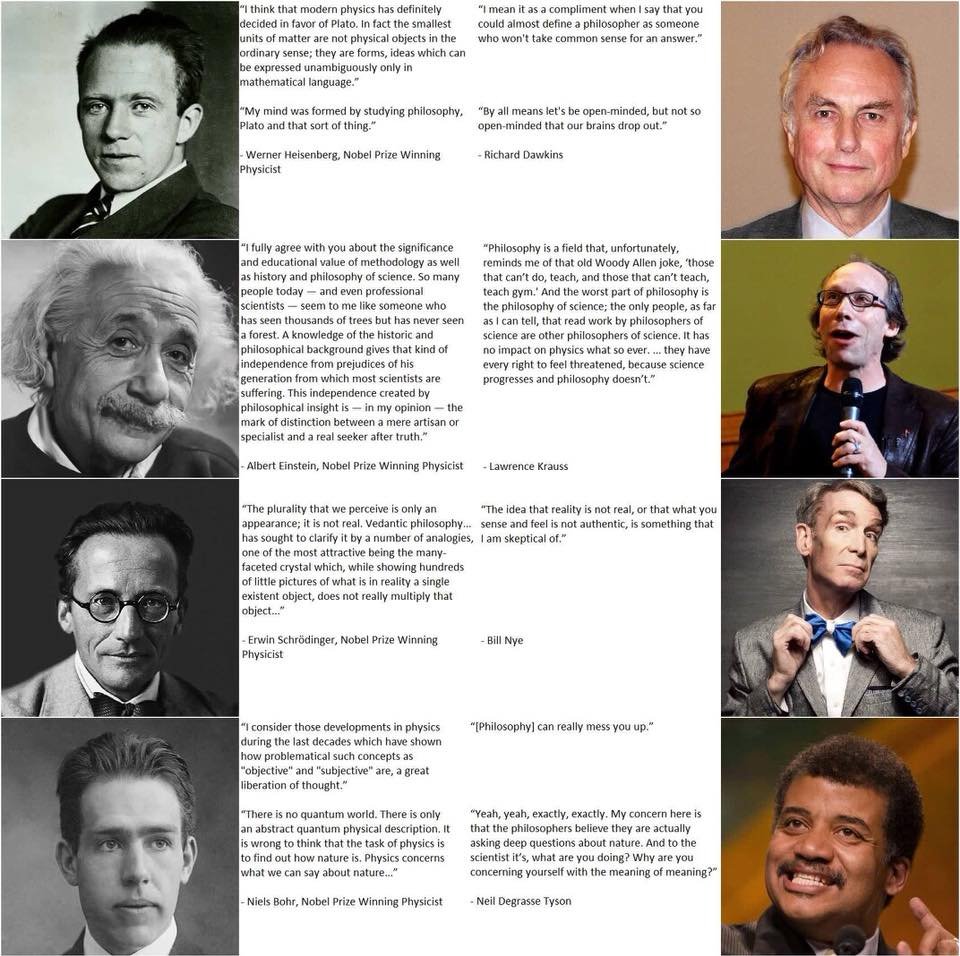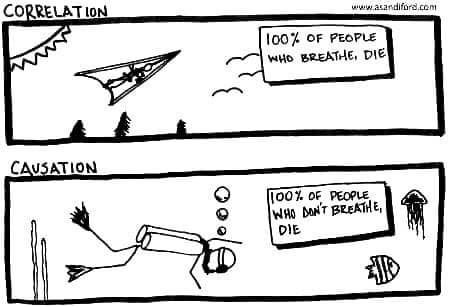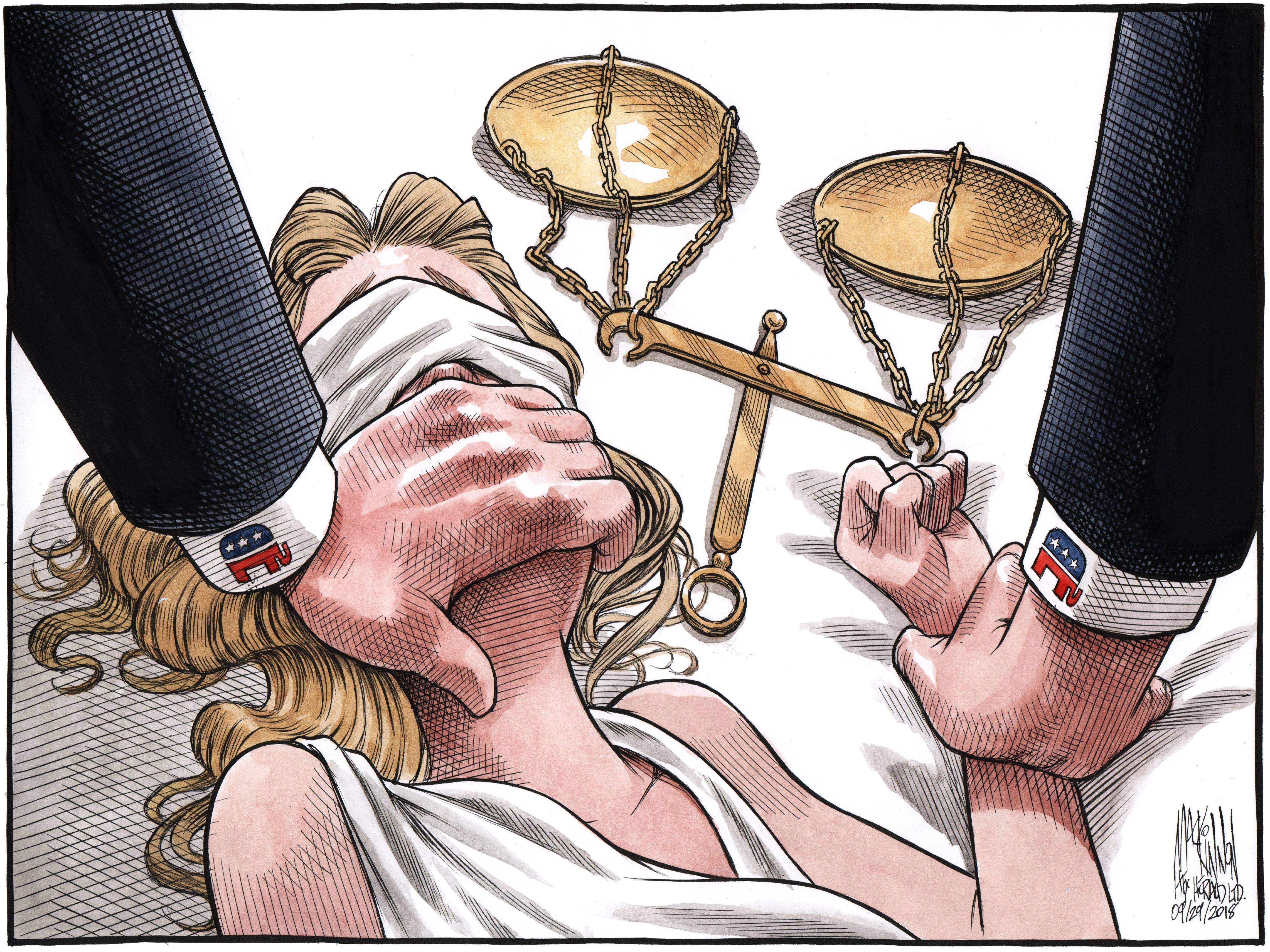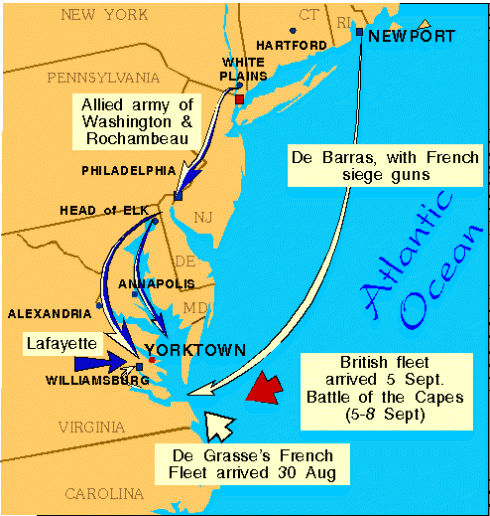NAPOLEON ENVY & ADMIRATION IS A GRAVE DISEASE THAT NEEDS TREATMENT. Here is some cure against this still rampant affliction:
Napoleon was no Caesar:
To immediately focus away from what is not at issue here, let me remind the reader I am an admirer of Caesar (although aware of Julius’ flaws, including deporting millions, seizing the last free Greek city-state, Marseilles, and exterminating entire cities). The point though is that Caesar lived in the most difficult times, and, although “Dictator For Life” (a stupid, but understandable idea considering the circumstances; he should have put a ten year limit), Caesar had left the Republic intact (and that cost him his life, as he had not measured the full depth of corruption of his opponents).
Napoleon had none of the excuses of Caesar. And none of his achievements. Even as a general, Caesar was vastly superior, tactically and especially strategically.
Although Caesar led a revolution (complete with redistribution of wealth: consider his Agrarian Reform of 59 BCE), Napoleon buried one. Caesar wanted to save the Republic, Napoleon killed it.
***
Why is Napoleon Bonaparte considered a hero?
Napoleon is admired because most people are tempted to become nasty nuts, and are mesmerized by Napoleon for having done so. That’s the positive side. On the negative side, Napoleon’s admirers are plain ignorant. They attribute to him things he wanted gone, while other things he did, they have no idea.
On one thing they are right: Napoleon was an authentic hero in combat, on the battlefield (as Caesar, a “savage” fighter, “like a wild beast” was). Napoleon was also an expert in calculus… and geometry (there is such a thing as the intriguing Napoleon’s theorem).
Could Napoleon have been Caesar? Did Napoleon simply chose to be a cretin? I doubt it. Caesar’s background was unequaled; he was the nephew of seven times Consul, populist and supreme general Marius, savior of Rome. Caesar got the best teachers. His first and last words were in Greek, not Latin.
In comparison, Napoleon, with due respect to Corsican savages, was just one of them. And it showed.
Napoleon in a nutshell: A grandeur deluded, macho, sex-obsessed, misogynistic, vain-glorious, self-obsessed, tyrannical, cruel, jealous, god-crazed, mass-homicidal greedy mafioso assassin disease ridden revolution diverting slave master… What could have gone wrong?
German philosopher Hegel, a philosopher of history who made some valid points in a sea of massively lethal delusion, was transfixed by the dictator. In a letter from Iena to his friend Niethammer, October 13th, 1806, when he had just finished writing The Phenomenology of Mind : ”I saw the Emperor -this soul of the world- go out from the city to survey his realm; it is a truly wonderful sensation to see such an individual, who, concentrating on one point while seated on a horse, stretches over the world and dominates it.” (Correspondance, T. I, p.114) [1].
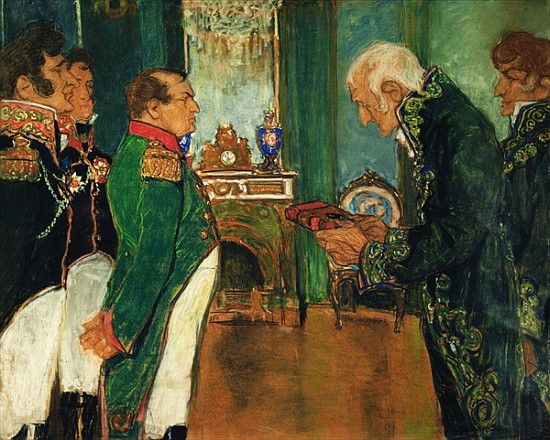
History top biologist, Jean-Baptiste de Lamarck handing the book ‘Zoological Philosophy‘ to Emperor Napoleon Bonaparte, 1809 (pastel on paper, 1920 by Ezuchevsky, Mikhail Dmitrievich (1880-1928); 32.5×24.5 cm; State Darwin Museum, Moscow; The French “naturalist historian” Lamarck (1744-1829) published ‘Philosophie zoologique‘ in 1809, in which he outlined the theory of evolution and in particular the smart mechanism now known as Lamarckism (soon to be proven right). [Russian, out of copyright. Soviets were favorable to Lamarckism, for obvious reasons, just as Napoleon had excellent reasons to hate it, preferring Cuvier’s catastrophism… Both Lamarck and Cuvier were right… ]
Hegel explains quite a bit the apparition of the likes of Bismarck, and, worse, Kaiser Wilhelm II and Hitler. For Hegel, Napoleon is a hero because he knows “what is necessary and what to do when the time comes” (Lectures, p.35). The historical heroes, including Napoleon, know ”the truth of their times and their worlds because they are aware of the historical necessity : that is why, like Alexander and Caesar, Napoleon is a wise man because he knows the nature of his era.”
Well, actually Caesar is one thing, Alexander, another. Caesar found a collapsing Republic, infused with righteous plutocrats, thoroughly corrupt at a lethal level (Cassius and Brutus, the two main Caesar assassins, committed serious, even attempted murderous crimes against the Greeks… and that was, by sheer greed, although they were among the wealthiest men in the Republic, so powerful, their corruption was not seriously prosecuted).
Alexander, instead, found a Republic and Direct Democracy, Athens, still recovering from her near-death experience of the Peloponnese War. Alexander actually visited, as the world’s most famous tourist. The truth of the times was that Athens was the treasure. Had he really embraced progress, and the cutting edge of civilization, Alexander would have become Athens’ main weapon. Instead, Alexander adopted an ambiguous role… Which enabled Antipater, Alexander’s senior and successor, to defeat Athens and turned her into a… plutocracy. Also Alexander annihilated Thebes, and Tyre, crimes of the sort not even Hitler committed. Tyre was at the origin of the entire Greek civilization: that’s where Europe came from, or, at least, the alphabet.
For Hegel, annihilating cities such as Thebes, Tyre was a “historical necessity” which made Alexander a hero. Is there anybody reading this who still ponders why Hitler appeared where he did, speaking the same language? How come such a little jerk is viewed as a great philosopher?
Following Hegel like the sheep the shepherd to the slaughterhouse, some say Napoleon made France into a great power. False, even ridiculous, quite the opposite. It’s the Republic which won the minds, and it is the Republic which is still winning them, not the Corsican mafioso.
Watch Brexit for further edification: in the present UK electoral campaign, all parties are running on populism, that is, Republicanism…
***
France had been the superpower of Europe, nearly since the early Franks:
Roman emperor Julian was elected Augustus by the Parisians in 360 CE (and tried to stem the slide of the empire into superstition).
Over the next 800 years, the Franks would conquer what they called Europe, from Scotland to Sicily and from the Spanish March to Poland. The Viking even got started after the Franks gave an ultimatum to Denmark (about recovering fleeing, plotting Anglo-Saxons).
One could even say that the Franks, a confederation of Romanophile Germans were created around principles which went beyond what Rome was capable of. So no wonder they conquered Europe, succeeding where the Romans had crucially failed, with the worst consequences for the empire (maybe because conspirators assassinated Caesar five years early)
***
Napoleone di Buonaparte, from artillery officer to genius general:
The future dictator of France didn’t learn to speak their language until he was sent to boarding school at the age of 9. It was not his second language, but his third. Napoleon, that little plutocrat from Corsica, was recognized as noble by the plutocratic Ancient Regime, so he was admitted to artillery (boarding) school (after passing an exam). Bonaparte came out an officer, and a good one: he triumphed at the siege of Toulon, which was occupied by the plutocratic, invading British. Napoleon’s attack plan worked perfectly, and the Brits, finding themselves under French guns, had to flee, giving up on their invasion of France from the south.
Severely wounded during the Toulon assault, Napoleon was promoted from captain directly to general. Soon, the republican Directoire wisely came to hate Napoleon, and sent it to Egypt, hoping he would die there. After a lunatic and mass murdering campaign, Napoleon couldn’t take an Ottoman fort full of ammunition at Saint Jean d’Acre, in his little completely demented plan to take over the entire Ottoman empire with his small army cut from its bases petered out, and he had to flee. On the positive side, he had freed Egypt from the Ottomans, and offered it to the United Kingdom…
***
The legal system set-up by Napoleon was extremely misogynistic. He cracked a joke about it: women had all the power already, so his legal code removed all their rights. This was all the more remarkable as women played a central role in the Revolution and nearly got the right to vote. But Napoleon loved to enslave: he actually re-established slavery, which the Revolution had outlawed.
There is no doubt Napoleon was physically courageous, behaving as a hero many times, in many ways. But one can find plenty of heroes, in the sense of risking one’s life or limb, with many abominable causes.
Much is made of Napoleon’s military genius. However, other French revolutionary generals won great battles before him. A lot of these battles were won from the enthusiasm of the French revolutionary draftees, and also the fact that France had the best engineering, in particular the best explosives. The Polytechnique School, a branch of the military was created during the Revolution just to make sure French military tech was superior.
The enormous achievements of the French Revolution (the basis of modern egalitarian law, and UN Charter) are often considered to be due to Napoleon, by the ignorant. For example, on 7 April 1795 the metric system was formally defined in French law: nothing to do with Napoleon. Actually Napoleon hijacked the Revolution, and greatly demolished it, in fact and spirit. Instead of letting Europe unite as a Republic, he grabbed it as a plutocrat, and pressed it like a lemon.
The fact so many admire Napoleon, from Hegel, to all too many people around the planet, and implicitly, the structure of the French state (widely copied worldwide, even by the USA) is a serious problem. Indeed, it’s a glorification of fascism and the Dark Side.
***
Why Napoleon hated evolution: because, by removing “God”, evolution made him responsible for his abominable deeds, his despicable character, and childish impulses:
Lamarck, by then immensely prestigious, offered to the self-declared emperor one of his books on evolution. Napoleon made the research professor who discovered evolution, cry. No doubt Lamarck cried seeing the world at the feet of such an unwise, primitive maniac. Napoleon suggested, even with his favorite Laplace, that the universe had been created by “God”,no doubt to justify his own primitivism: Napoleon’s crude behavior was an act of god, Napoleon was not truly responsible. Not really Napoleon’s fault that he had to kill innocent people he disliked.
Lamarck’s suggested that complexity and the striving for solutions drove evolution. In other words, intelligence drove the universe, not the happenstance of god, and thus, as Napoleon invaded Spain and caused havoc there, and thus, as Napoleon invaded Spain and caused havoc there, Napoleon, not “God”, was responsible for the atrocities in the Iberian peninsula. Spain was among other places that Napoleon, in the guise of propagating the Republican revolution, peppered, as the rest of Europe with his relatives made into the local tyrants…
This being said, the conflict between Napoleon and Lamarck was complicated… And at a very high level of mental debate: Napoleon sided with Lamarck’s deadly enemy Cuvier, himself a top evolutionist, but who believed in evolution generated by catastrophes (like the one which destroyed the dinosaurs). Cuvier has certainly been proven right, yet Lamarck, of course is a towering giant whose time is yet to fully come (Quantum Mechanics makes evolution intelligent, I reckon…)
***
“Come general, the affair is over, we have lost the day,” Napoleon told one of his officers. “Let us be off.” The day was June 18, 1815. Around 8 p.m., the emperor of France knew he had been decisively defeated at a northern French village called Waterloo, and he wanted to escape from his enemies, some of whom—such as the Prussians—had sworn to execute him (the Prussians had been keen to execute the French since 1792…). By 5 a.m. the next day, they stopped by a fire some soldiers had made in a meadow. As Napoleon warmed himself he said to one of his generals, “Eh bien, monsieur, we have done a fine thing.” Extraordinary sangfroid that even then, in the midst of catastrophe, Napoleon was able to joke. However, it was not funny: thanks, in great part, to his antics, racism and oppression were to rule over central Europe, masterminded by Prussia. And British plutocracy was on a roll, and would stay that way for another 204 years (and counting).
What?
***
Like Augustus in Rome, Napoleon had not fully defeated the Republic; instead both used the Republic as leverage. As with Augustus, that was good for the tyrant, but it wore out the Republic:
In 1815, after Napoleon, and thus French Republicanism defeat, racism, anti-Judaism, oppression, occupation of Eastern Europe by Prussia and company was reestablished.
Let me quote from: “Why We’d Be Better Off if Napoleon Never Lost at Waterloo
On the bicentennial of the most famous battle in world history, a distinguished historian looks at what could have been.
If Napoleon had remained emperor of France for the six years remaining in his natural life, European civilization would have benefited inestimably. The reactionary Holy Alliance of Russia, Prussia and Austria would not have been able to crush liberal constitutionalist movements in Spain, Greece, Eastern Europe and elsewhere; pressure to join France in abolishing slavery in Asia, Africa and the Caribbean would have grown; the benefits of meritocracy over feudalism would have had time to become more widely appreciated; Jews would not have been forced back into their ghettos in the Papal States and made to wear the yellow star again; encouragement of the arts and sciences would have been better understood and copied; and the plans to rebuild Paris would have been implemented, making it the most gorgeous city in the world.
Napoleon deserved to lose Waterloo, and Wellington to win it, but the essential point in this bicentenary year is that the epic battle did not need to be fought—and the world would have been better off if it hadn’t been.[2]”
Yes, but plutocracy would have suffered, and plutocrats don’t like that, do they? if nothing else, their perverse admiration for Napoleon rested on the evidence that Napoleon was the best weapon against the Republican Revolution. There is evidence that, starting in 1812, with the Russian campaign, Napoleon military genius deserted him. In 1812, the Grande Armee, more than 600,000 strong, full of idealistic young Germans and Poles, was poorly managed: too many stupid, frontal battles (instead of the subtle victories an outmanned Caesar had no problem producing). Moreover, the Grand Army had typhus, soldiers were dying like flies, and the campaign should have been delayed.
At Waterloo, Napoleon split stupidly the French army, and then committed a long succession of mistakes, including the charge of the French horse at the wrong moment, not ordered by him, and waiting for general Crouchy, at the risk of getting the Prussian army instead (as happened). In spite of its remaining revolutionary zeal which had been Napoleon’s not so secret fuel, this was too much for the French veterans.
And why did Napoleon attack the Czar? Long story. And the Czar, allied to perfidious Albion, managed a country with awful serfdom, close to slavery without the possibility of being sold.
The basic irony, though, is that Napoleon, following earlier revolutionaries, wanted to unite Europe. The philosopher proximally culprit of the French Revolution, personal enemy of Napoleon, Donatien Alphonse François, Marquis de Sade, had warned them all: don’t try to impose the Republic upon Europe. Fight mostly defensely. Revolution, the Republic, would come all over in time. The revolutionaries didn’t obey Sade. Napoleon sent Sade to a mental asylum.
However Sade was right: the Republican revolution would self-propagate. It’s now Great British plutocracy itself which is self-imploding, and Europe can be united under Republican, that is French, principles, all over.
So, now, for the case of Russia…
Meanwhile, please remember: Napoleon is not even worth forgetting.
Patrice Ayme
***
***
[1] Hegel in Elements of the Philosophy of Right (& 348) : ” At the forefront of all actions, hence of historical actions, stand individuals or subjectivities which effectively cause the substantial reality to occur. ” In Lectures on the Philosophy of History, a few years later, Hegel teaches that historical heroes ” are practical-minded men. ” (p.35). Napoleon, like Alexander and Caesar, is thus a man of action : he is not what he thinks, neither what he hides, but what he does. In The Phenomenology of Mind, he wrote: ” The real being of man lies rather in his deed; it is in this deed that individuality is effective… the individual is what this deed is. ” (p.231).
You are what you do, not what you eat? Neither: historical heroes act according to what they feel and what they think, most of it, imprinted into them as children: Alexander’s was the exact prolongation of his father Philippe, just even more nutty (bold). Caesar was essentially Marius reborn, just newer and better… And Napoleon was just according to his formation: a classical glorified island bandit, from an island famous for its piracy… by comparison, a young Caesar was captured and held hostage by pirates allied to Mithridates (and Roman plutocrats). After a second kidnapping, Caesar, held for 38 days, promised to his captors that he would seem them crucified, and he did.
Long after his defeat, Hegel admired in Napoleon the founder of the modern State. In Lectures on the Philosophy of History, Hegel relates and then justifies the coup of Brumaire, 18th. : “Again arises a government organized like the old one ; but the leader and monarch is now a changeable Directoire of five people forming undoubtedly a moral, but not individual, unity. Mistrust was prevailing among them as well and the government was in the hands of the legislative assemblies. It had therefore the same fatal destiny, because the absolute need of a governmental power had made itself felt. Napoleon reinstated it under the form of military power and then placed himself again at the head of the State as a source of individual will ; he knew how to govern and was soon done with the internal. ” (p.342).
Napoleon is thus, to Hegel, the founder of the modern State because its principle is henceforth not the will of all, not the will of a few but the will of the Prince. There is no difference with, say, Alexander the Great, Augustus, Diocletian, Clovis, Philippe Le Bel, Louis XI, Henry VIII, Louis XIV, so Hegel is either an idiot, or a clever merchant who knew all to little history to pretend teaching it, except to the deeply ignorant.
***
[2] This is only a very small list of the satanic (Pluto!) ways which arose after Napoleon’s defeat, and thus the Republican Revolution coup d’arret. Jews were racially tortured all over Europe (except France, Britain) after Napoleon/French revolution’s, defeat. As I said, Eastern Europe would not be freed until after the Versailles Treaty of 1919… And the 1914-1945 war can be seen as Waterloo’s revenge, part one. Part two is Brexit.
Share this: Please do share, ideas are made to spread and enlighten!






